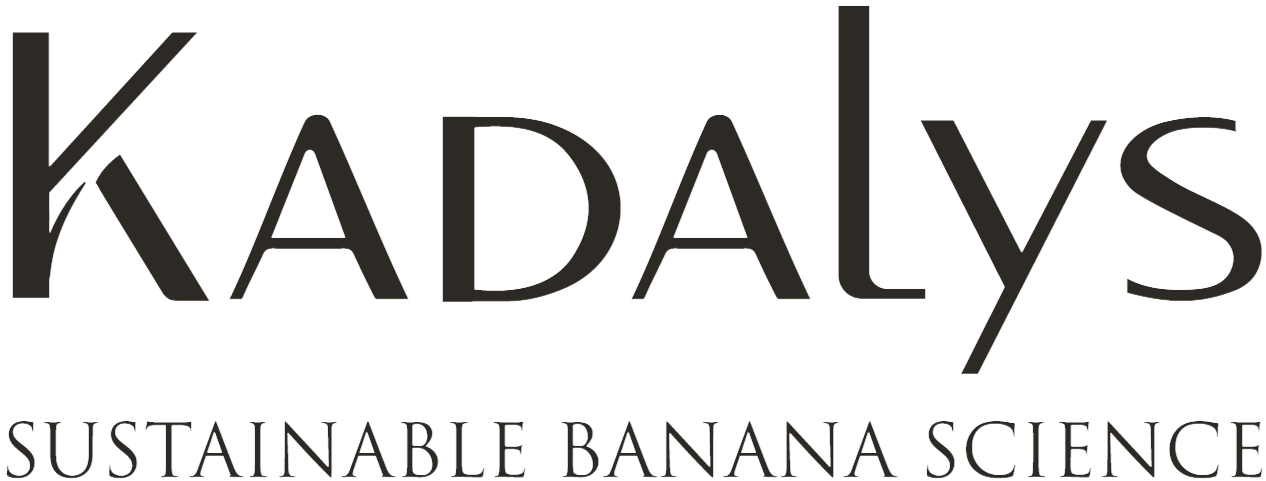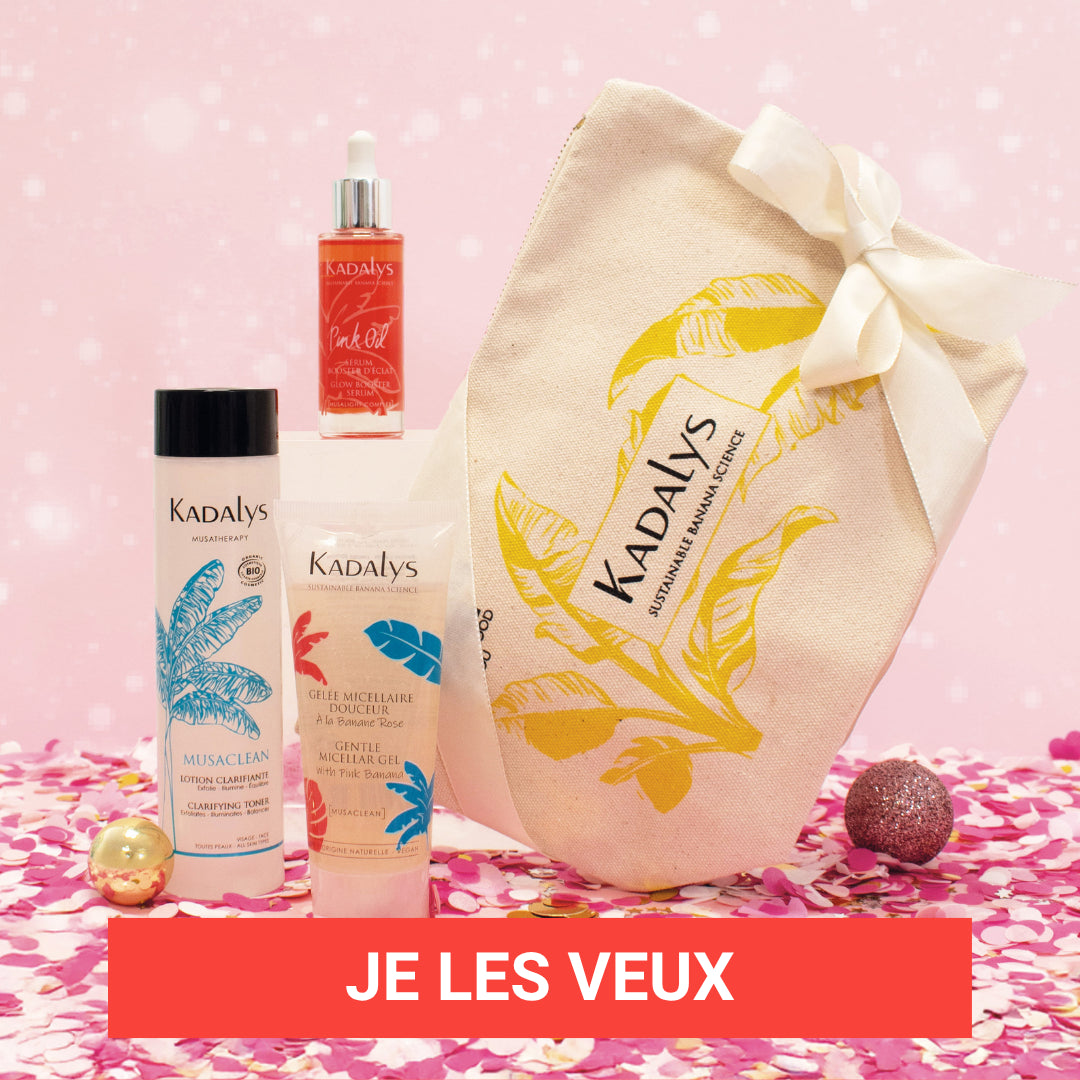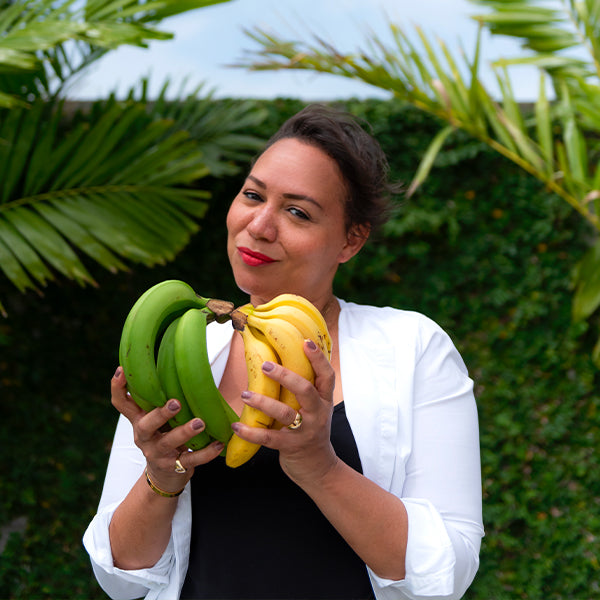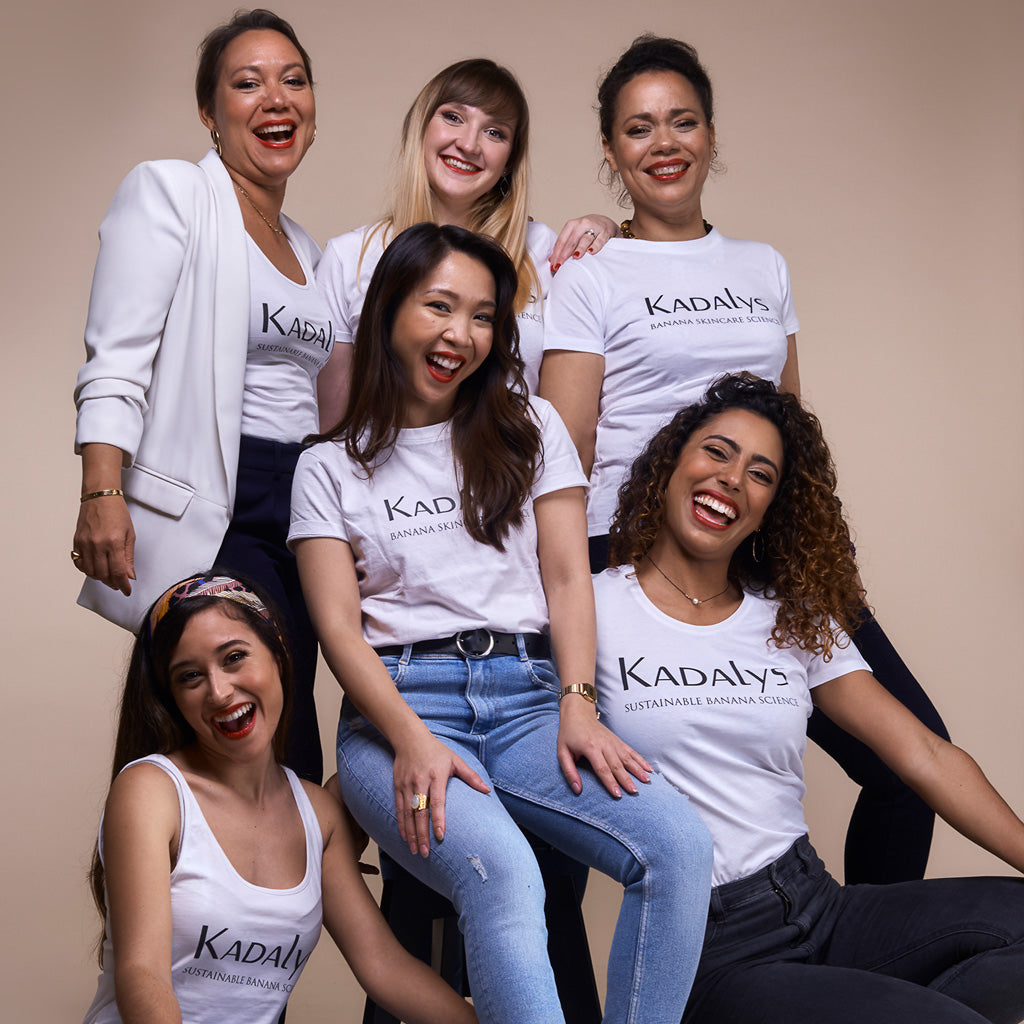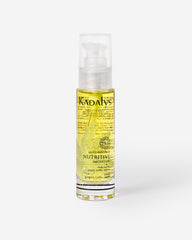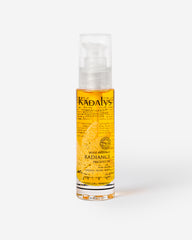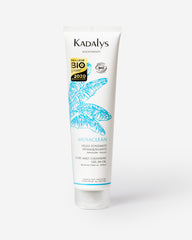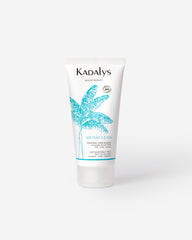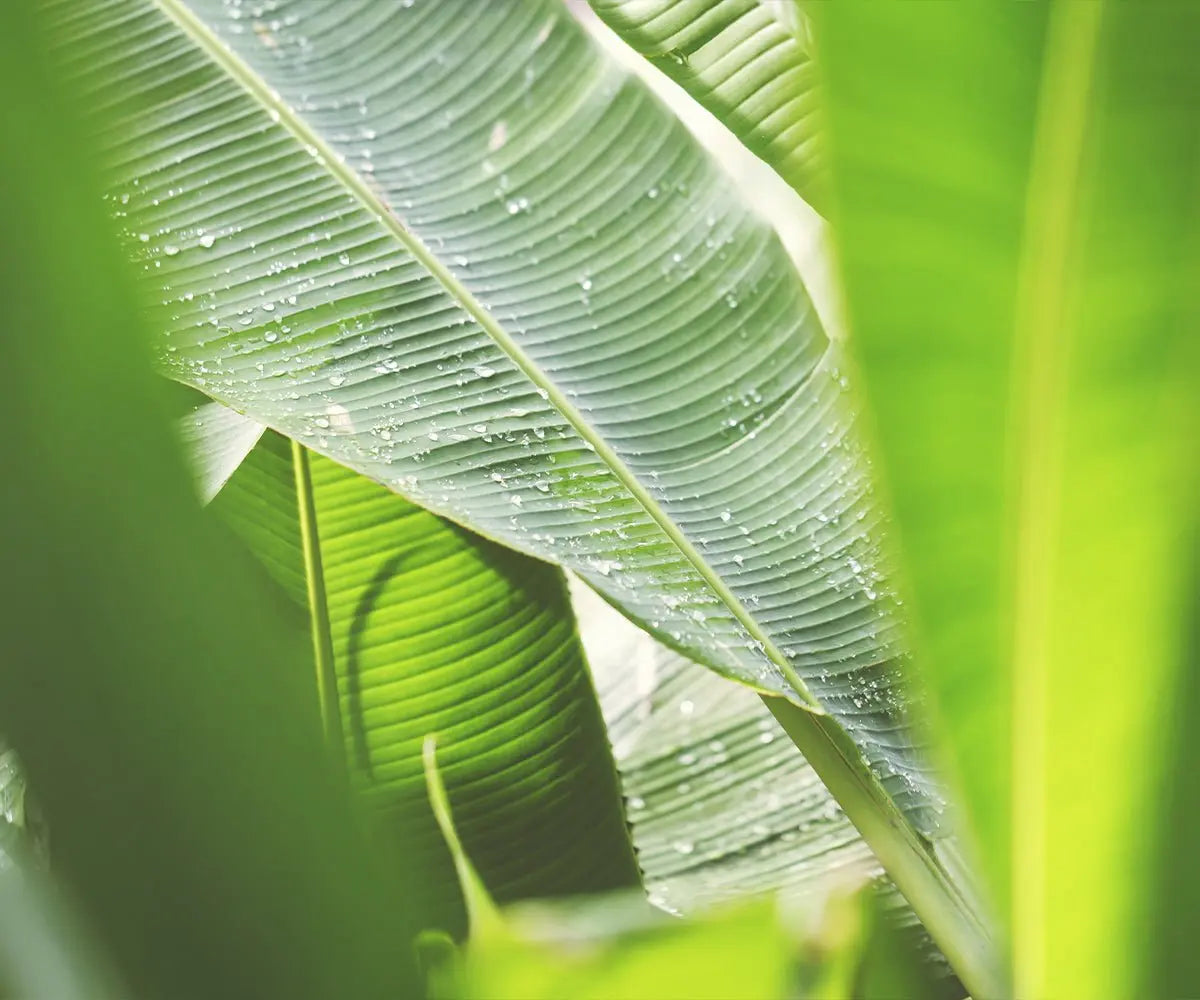
Vegan cosmetics: What does vegan mean for a beauty product? How do you know if a cosmetic product is vegan?
You are probably aware that the trend in terms of cosmetics is towards naturalness, respect for the environment and nature. Organic beauty products , eco-designed packaging, ingredients of natural and plant origin, beauty has never been so green , so clean and so pure! We're not going to lie to you, this return to nature suits us perfectly.
Indeed, at Kadalys, we believe in organic beauty that respects the skin and hair as much as the environment! Something else we believe in more than anything: respect for animals , and we are not the only ones.
For several years now, we have been able to find products labeled “ Vegan ”, “ Cruelty Free ” or even “One Voice” or “Not Tested on Animals” on store shelves and online stores. But, what do these different labels mean?
In this new article, we take stock of vegan cosmetics and the differences between organic , vegan and cruelty free !
SUMMARY
- What is vegan cosmetics?
- How to identify vegan beauty products
- Understanding the ingredients
- Vegan, organic, cruelty-free cosmetics: what are the differences?
- The advantages of choosing organic cosmetic products for daily routine
What is vegan cosmetics?
If you are trying to find the definition of vegan cosmetics on the internet, good luck! Indeed, despite the numerous labels and different designations, no clear definition exists on the subject and everyone has their own ideas.
What we can tell you is that when a product has one of the many vegan labels , it means that it does not contain any ingredients of animal origin , and that none of these ingredients are tested. on animals and that the final product is also not tested on animals.
Vegan beauty products are therefore cosmetics that do not contain products from the hive (honey, propolis, beeswax), milk of animal origin (such as donkey milk), pigments from animals (like carmine obtained from crushed cochineals), glycerin, collagen and animal keratin!
Regarding accessories, you can also find vegan beauty accessories, such as brushes and brushes made with synthetic hairs.
Be careful not to confuse the label “vegan” and “organic”, because they have nothing to do with each other. Indeed, certain labels, such as the Nature et Progrès label, a very demanding organic label, do not tolerate testing on animals and prohibit animal materials with the exception of honey, milk, beeswax and eggs.
On the other hand, the “Vegan” label issued by the Vegan Society, a demanding vegan label, prohibits all ingredients derived from animals, as well as tests on them, but does not guarantee the natural or organic side of a product.
To find out more about the different vegan labels, it's just below!
Good to know: since 2013, the European Union has banned all tests on animals ! This means that all products marketed in Europe have not been tested on animals.
On the other hand, not all brands sold in Europe are necessarily vegan or cruelty free. Indeed, when a brand wants to sell its products in Asia, it must first test them on animals... Be careful, if you do not want to support a “mid-vegan” brand!
How to identify vegan beauty products
As mentioned above, there are different labels that identify whether a beauty product is vegan or not. By vegan, you understand, we mean:
- that it does not contain ingredients of animal origin
- that none of its ingredients are tested on animals upstream
- that the final product is not tested on animals
.
But trusting labels is not always a source of safety! Indeed, some labels are very demanding when it comes to animal testing, but they are a little more open about certain components such as honey or beeswax.
Therefore, another way to know if a cosmetic is vegan is to read the list of ingredients! We explain everything to you just below:
Understanding the ingredients
We know that it’s not always easy to decipher the list of ingredients in your treatments ! Unfortunately, just like organic skincare, vegan cosmetic products are sometimes victims of greenwashing.
Some unscrupulous brands can use good communication and good images to make you believe that their product is vegan, when it is not… The only solution to this is to learn how to decipher the INCI list!
To do this, you can learn about the subject through books, videos or simply blog articles. You can also use applications that will allow you to decode the components of your care!
If you want to go as simple as possible, we recommend using skincare products that are vegan in nature. What do we mean by naturally vegan skincare? Simply a 100% vegetable or mineral treatment such as a hydrosol, an essential oil, a clay, a vegetable oil or even a vegetable butter!
Vegan, organic, cruelty-free cosmetics: what are the differences?
Be careful not to confuse a natural cosmetic product with an organic beauty product or a vegan beauty product !
Indeed, these three pieces of information have nothing to do with each other. A product can be natural without being certified organic just as a product can be organic without being certified vegan.
- Vegan cosmetics are not necessarily organic cosmetics! It may in fact contain ingredients prohibited by organic label charters, such as silicones, parabens or mineral oils. “Vegan” only certifies that the product does not contain any ingredients of animal origin and that it is not tested on animals.
- A product that carries the “Cruelty Free” label is a product that is not tested on animals and does not contain any ingredients tested on animals. On the other hand, it may contain honey, milk or any other ingredient from animals.
- A certified organic product is a cosmetic in which at least 95% of the ingredients are of natural origin and some of these ingredients come from organic farming. An organic product is not necessarily vegan since it may contain bee products, for example. On the other hand, in organic farming, no testing on animals is tolerated!
- A natural product is a treatment in which 95% of its ingredients are of natural origin! A natural product is not necessarily organic or vegan.
Good to know: the “Cruelty Free” label should gradually disappear from cosmetics marketed in Europe. Yes, as said above, since 2013, the cosmetics industry can no longer market products tested on animals in Europe. The term “Cruelty Free” therefore no longer makes sense given that the tests are prohibited!
Identifying vegan labels: which ones are reliable?
If you want to use vegan cosmetics (not tested on animals and without ingredients of animal origin), we recommend that you trust the following labels:
- The “Vegan” label of the Vegan Society: created in 1944, it represents the international standard for vegan products.
- The “Vegan and Cruelty Free” label from PETA (People for the Ethical Treatment of Animals), a label that fights against animal violence.
- The “Certified Vegan” label, issued by the Vegan Awareness Foundation.
Then, here are the labels to look for if what interests you are products not tested on animals (although no product marketed in Europe is supposed to be):
- PETA’s “Cruelty Free” label.
- The One Voice label.
- The “Leaping Bunny” label, an international label.
These different labels are guarantees of safety for consumers: they guarantee compliance with a strict charter, but also regular monitoring of the products and the brand.
Please note, certain labels are affixed to brands in general, while others only concern certain products marketed by the brand. This is the case of the “Vegan” label from the Vegan Society which certifies the products and not the brand!
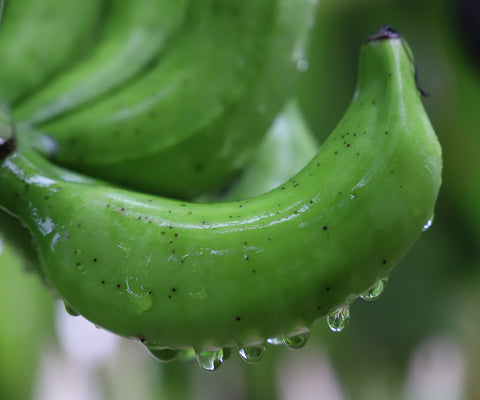
The advantages of choosing organic cosmetic products for daily routine
Choosing to use organic and natural cosmetics for your daily routine guarantees you the use of body, facial or hair care products that are safe for your skin and your health!
Organic and natural cosmetics are treatments that use quality ingredients, less toxic to health (no more endocrine disruptors) and less polluting.
These cosmetics are also known to be more effective on the skin! Indeed, their mainly natural composition is better absorbed by the skin, which offers more convincing results.
Beyond choosing organic cosmetics, you can also choose organic and vegan cosmetics! Respect for the skin, respect for the environment, respect for animals, effectiveness and sensoriality, vegan and organic cosmetics have it all. You do not believe in it ? However, you just need to test Kadalys vegan cosmetic products to be convinced!
Now you know what a vegan beauty product is and how to spot it. All you have to do is find the vegan cosmetics brand that suits you both in terms of beauty experience and in terms of effectiveness!
